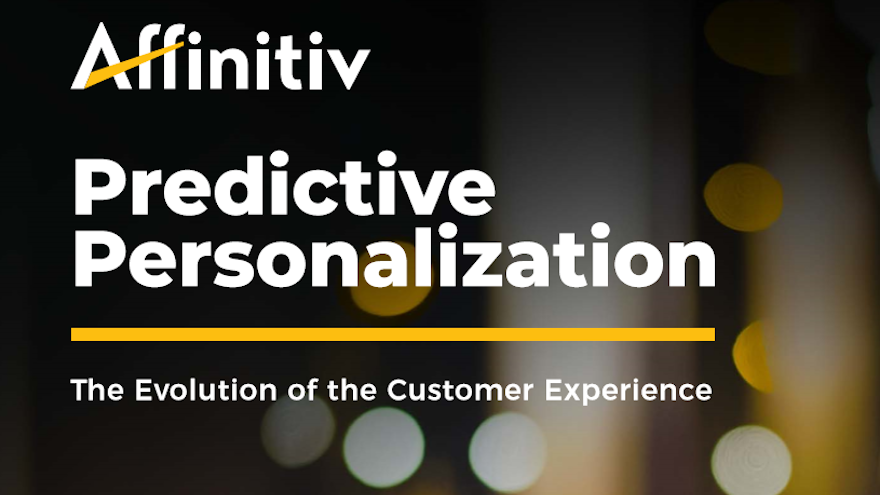Survey: Dealers’ online experience lacks personalization

Image courtesy of Affinitiv.
By subscribing, you agree to receive communications from Auto Remarketing and our partners in accordance with our Privacy Policy. We may share your information with select partners and sponsors who may contact you about their products and services. You may unsubscribe at any time.
CHICAGO –
Sixty-five percent of consumers according to a recent survey want auto dealer websites to personalize vehicles of interest.
But only 47% of dealer websites proactively recommend vehicles of interest based on the customer’s browsing behavior.
The survey from Affinitiv, which is a marketing technology company serving automotive manufacturers and dealerships, found that the online shopping experience from the majority of dealerships fails to meet customer expectations.
How can companies improve in that area? Through predictive personalization, according to the survey.
“The website is often the first point of contact with a dealership, but most dealer websites were built using unsophisticated technologies that reflect an antiquated notion of how consumers buy cars,” Affinitiv’s vice president, strategy & analytics Doug Van Sach said in a news release.
He continued, “To meet customer expectations, auto retailers must evolve their shopping experience to match the precedent set by retailers in other industries.”
Subscribe to Auto Remarketing to stay informed and stay ahead.
By subscribing, you agree to receive communications from Auto Remarketing and our partners in accordance with our Privacy Policy. We may share your information with select partners and sponsors who may contact you about their products and services. You may unsubscribe at any time.
The Affinitiv survey of 1,000 automotive consumers, shown in the Affinitiv whitepaper, “Predictive Personalization: The Evolution of the Customer Experience," showed that 76% of recent car buyers said it was important for the dealer website to be personalized.
But only 26% of respondents said dealers provide a highly personalized experience on their website.
Affinitiv said consumers interact with non-auto retailers every day that provide a highly personalized online shopping experience. Consumers expect dealers to follow these companies as role models: Amazon, Nordstrom and Apple.
The online shopping experience from dealers falls short in three key areas, according to the survey. Asked which part of the website experience they wanted dealers to personalize, survey respondents mentioned vehicles of interest, vehicle features and “vehicles within my budget.”
Fifty-eight percent of consumers want vehicle recommendations based on specific features of interest. However, in the study sample of websites, no dealer websites recommended vehicles based on features of interest.
“Considering its high importance, recommending vehicles with relevant features is one of the single greatest opportunities for dealer websites to increase conversion rates and better meet the expectations of online shoppers,” Van Sach said.
More statistics of note from the survey in the area of personalization; Fifty-two percent of consumers expect a dealer’s website to help them find affordable vehicles. Sixty-two percent said that finding a vehicle with a specific monthly payment was as important, or even more important, than finding a vehicle within a specific price range.
But dealer websites didn’t make the grade in those areas. Only 9% of an Affinitiv sample of dealer websites allow customers to search by payment range and 11% of websites incorporated the customer’s credit score into the payment estimate, according to Affinitiv, which surveyed 1,000 auto consumers and analyzed a sample of 100 dealership websites to better understand the level of personalization that dealers offer.
“If websites aren’t dramatically improved to elevate the shopping experience and make personalized recommendations based on browsing behavior, dealers risk alienating potential buyers before they ever visit a showroom,” Van Sach said.
He added, “It’s up to dealers to challenge their vendors to demonstrate how their websites react to browsing behavior and deliver relevant vehicles with the right mix of features within a customer’s budget.”
The demand for personalization, however, doesn’t stop with the online shopping experience, according to Affinitiv. Consumers expect an even greater level of personalization when they visit the store.
Eighty-eight percent of consumers said personalization is important when they visit a dealer in person. Consumers expect the following areas to be personalized: Vehicle pricing options, vehicles ready to test drive and vehicle recommendations based on interest.


